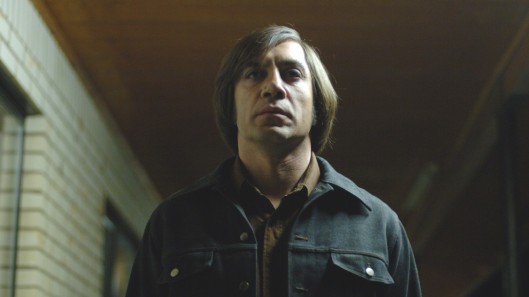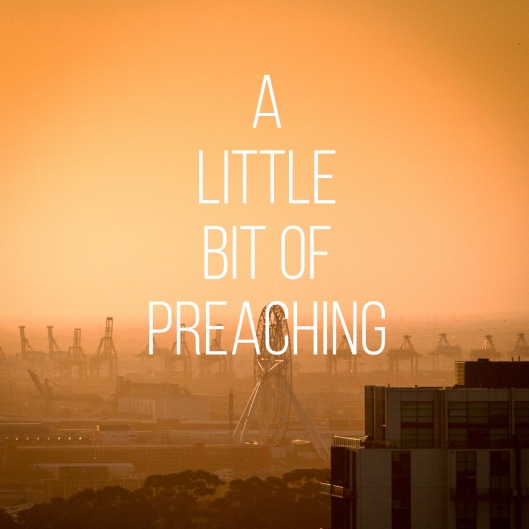
Lately, I’ve found myself thinking a lot about those who leave the church.
Having been in ministry for almost fifteen years now I’ve had the chance to lead many excellent young people in youth group. I still get to keep up with most of my former young people, many of them on Facebook, and some of them in real life. As far as I can tell they’ve grown up to be excellent adults. So many of them are doing impressive things and being kind, loving people to boot – it’s excellent! In addition to this, through my time in church I’ve made many wonderful friends. People I love and care for, whom I still love and care for, though I may not see them very often.
What saddens me however is that a lot of those who were in the youth ministries I led, people who I was friends with, and people I served alongside have left the church, and many of them appear to have no faith in Jesus. I do not know the state of anyone’s heart, I don’t know what anyone but me really believes, I just know what I am able to see and hear, and the reality of that is that people leave. As much as I’d love everyone who joins the church to stay in the church, as much as I’d like everyone who calls themselves a Christian to keep being a Christian, it just doesn’t turn out that way. Many people don’t stay.
To begin with, some were never going to stay, I knew this while I was with them even if some of them didn’t. With some people it’s obvious, they hang out at church because it’s where they have friends and there’s fun stuff going on. They were never captured by a love for Jesus, they never “got Christianity”, they were just going with the crowd. This isn’t the worst thing in the world. If the church can provide a safe space for young people, even those who aren’t “true believers”, that’s great! The church isn’t just a club for the faithful, so I’m glad to give people a place to be, if only for a time.
Others however were seriously seeking answers and some were, as far as I or they could tell, totally onboard, committed believers in Jesus. Some made a decision to follow Jesus with me right there praying with them. When these people leave, it saddens me the most. Not that they are any more valuable than those who were never going to stick around, but I saw them differently. I saw them as fellow followers, sisters and brothers, friends who beheld the beauty of God’s love and cherished it just as I did. When they go, it hurts. It may not end my relationship with them, but the thing I thought we both held as precious and beautiful, I realise they no longer love. It feels a little more lonely on the narrow path.
People leaving is not surprising. The Bible teaches it will happen, experience says it will happen, but that doesn’t stop it from hurting when it does.
The question for me is why did they leave? I don’t mean the Christians’ theological explanations, but what was going on for the people who left. Some people’s stories I can guess at, some people’s I hear second hand, some people have told me for themselves why they left, and the reasons are diverse.
For some it seems merely to have been an admitting of what they always knew was true. Their family brought them up as Christians, but they never really believed it. They went through the motions, they sang the songs, said the prayers, knew the answers, but it never felt true, they never felt convinced, and so the only honest and logical thing do was to leave. They were never Christians, they were just in the Christian community. Better to live a life that better suits who you are, than live a life that isn’t true.
Others seem to have really wanted to believe. They seriously sought out God, they seriously sought to believe and love what Christianity teaches. Yet no matter how much they sought God, he just never seemed to be there. Sometimes they would feel like they had an encounter with God, but the memory would fade, and the encounter could have very easily been the result of emotions, atmosphere, or a creation of their desires. Some people felt let down by God: he didn’t answer their prayers, he didn’t show himself to them, he didn’t stop the pain they felt, so he was either there and he didn’t care, or he never existed in the first place. And so in the end they face up to the fact that wanting something to be true doesn’t make it true and so they leave.
Others I suspect never made a conscious decision to leave, life just got in the way. Life is busy, church is one more thing in a busy life. Some are probably planning to go back sometime soon, but have yet to get around to it.
Other people leave not so much because of any particular problem with Christianity, but with Christians. They look at the way the Christians have treated them or people they love, their friends or their family and they decide they don’t want a part of it. Perhaps they have been doing something that their Christian friends didn’t approve of: maybe they were dating the wrong person, or getting drunk on the weekends, and instead of getting grace, they got judgement. So they left. If Christians can’t be accepting, if Christians are hypocrites, why be part of Christianity?
Some people I suspect leave for similar reasons, but not because of anything anyone says or does, just because of what they imagine people will say or do. As they started living a life that didn’t fit with Christian standards; dating someone who’s not a Christian, sleeping with their partner, getting drunk, doing drugs, or they found themselves attracted to people of the same-sex; they left the church before the church could kick them out. They pre-empted the rejection and they don’t want to go back because they suspect that all that waits for them is judgement.
Others I suspect were not afraid of what other people thought, they just knew that their choices didn’t fit with Christianity, so they left so as not to be one more hypocrite in the church.
Still others leave for intellectual reasons. Whatever they believed when they were young, as they have gotten older and encountered a wider range of beliefs and opinions, Christianity just doesn’t hold up. How can Christianity be the only true religion? How can we believe in all these miracles? How can God exist when there doesn’t seem to be any supporting evidence? How can God condemn everyone who doesn’t believe in him to hell? Related to these are the questions that come from personal relationships: How can Christianity be right if it means my gay, atheist, Buddhist, kind, loving, agnostic friends and family are going to hell? Being a follower of Jesus doesn’t feel like a valid option when it means concluding that some of the people you love may not be recipients of God’s mercy.
Similar to the above, some people will start dating a person who isn’t a Christian, and while they are committed to it not affecting their faith, often times it does. Not generally because their partner is actively against their faith (though sometimes that happens), but because they realise when they are in this intimate relationship that people who aren’t Christians aren’t boogiemen (or boogiewomen). They’ve been told in the church not to date someone who isn’t a Christian, so when they do it they realise it’s not the disaster everyone made it out to be. They discover their non-Christian partner isn’t out to destroy their faith, they are just a good person doing their best to be a good person. So they ask “If I love this person, how can God reject them? I don’t want to believe in a God like that.” Sometimes it’s not as clear as that, sometimes it’s just that the life they are becoming part of with their partner makes holding on to their faith harder. They aren’t actively supported in their church life, their partner isn’t actively supporting their sexual choices, their partner isn’t actively encouraging their faith, and the path of least resistance is to slowly leave their faith behind, till however they view their religious identity, the life they are living looks nothing like the life they once led when they actively pursued their faith.
I could go on I guess. The reasons that people leave the faith are more varied than I could fit into a blog post and than I could even begin to guess at. People leave, I don’t always know why they go.
Sometimes I think about those people who have left, and I wonder what I would say to them if I could really tell them what I think. When I meet them often we talk in passing, or we’re catching up, we’re being polite. I wish we could talk about it, but it rarely seems right, and it seems like it could get real awkward. But if I could say anything, what would I say? I guess I would say something like this:
I love you. I miss you. I liked being your brother. I still want to be your friend. Or perhaps if we were never really friends, could we still be friendly acquaintances?
I don’t feel betrayed by you or angry at you, nor do I judge you.
If you left because of conscience or belief, I appreciate your bravery. Leaving the safety of a community where you fit in, where you knew the norms, where your friends and family were, because you wanted to live a life of integrity must have been frightening and hard. I hope that in my own convictions I might be able have the bravery you have.
If you left because you didn’t like what Christians do, you were appalled by the way the church treats people, or you were opposed to the positions Christians have taken on important things, please don’t reject Jesus because of something less than what is central to Christianity, the saving death and resurrection of Jesus. There are many things, big and significant things, that are up for discussion, don’t let them force you away from Jesus.
If you never intended to leave but you have found yourself a long way off, seemingly too far to come back, know that you’re never too far gone. Don’t let unintentional drift define your faith.
For whatever reason you left, I haven’t given up on you. You’re just as important and valuable now as you were when you identified as a Christian. I don’t know how to show you this without it seeming weird, but I would do the same for you now as I would have when you were following Jesus. There’s always room at my table for you.
I’m sad that you left because what’s most valuable to me, is not valuable to you anymore. You are not responsible for my feelings, and I may not even be right in my beliefs, but my feelings are what they are, and I liked having you on the team.
Much more important than any of my feelings is that God hasn’t given up on you. If he’s real, and I’m sure he is, he’s not fuming that you left. I’m guessing you remember the story: he’s watching the road in the hopes you’ll come home again. He will run to meet you, he will welcome you back as his precious child. He will have a great party at your return.
I don’t know, but my guess is there are times you miss him, you may speak to him sometimes, you may somewhere be holding onto a belief in his existence, hoping against hope that he’s real and he loves you. If I know nothing else, I know this. He’s real and he loves you. He will always have you back. With all your doubts, all your questions, all your baggage, all your sin and all your pain, he will always have you back. You have unlimited forgiveness, unlimited acceptance, unlimited grace available for you. God likes you. God loves you. There’s always room at his table for you.
Finally, seek the truth. If Jesus didn’t die and rise again, this whole Christianity thing is a waste of time, and this love I’ve been writing about is a lie. Don’t believe in anything because it sounds good, or feels comfortable. Always seek the truth. If you left because because you were pursuing truth, always be willing to come back for the same reason. It’s all I can ask.
Let’s keep being friends. Or if we were never that, maybe at least we can be friendly acquaintances.
There’s a chance, if you read this, you are someone I know who was once a Christian. Or maybe I’ve never met you, but you too are someone who left. I’d love to hear from you. Email me, or Facebook me, or SMS me, you can even write me a letter. If you don’t have a way of contacting me, comment below. Tell me your story, tell me why you left, tell me how you’re going now, I’m still interested in you. I mean what I said. Let’s be friends, or friendly acquaintances at the least.













